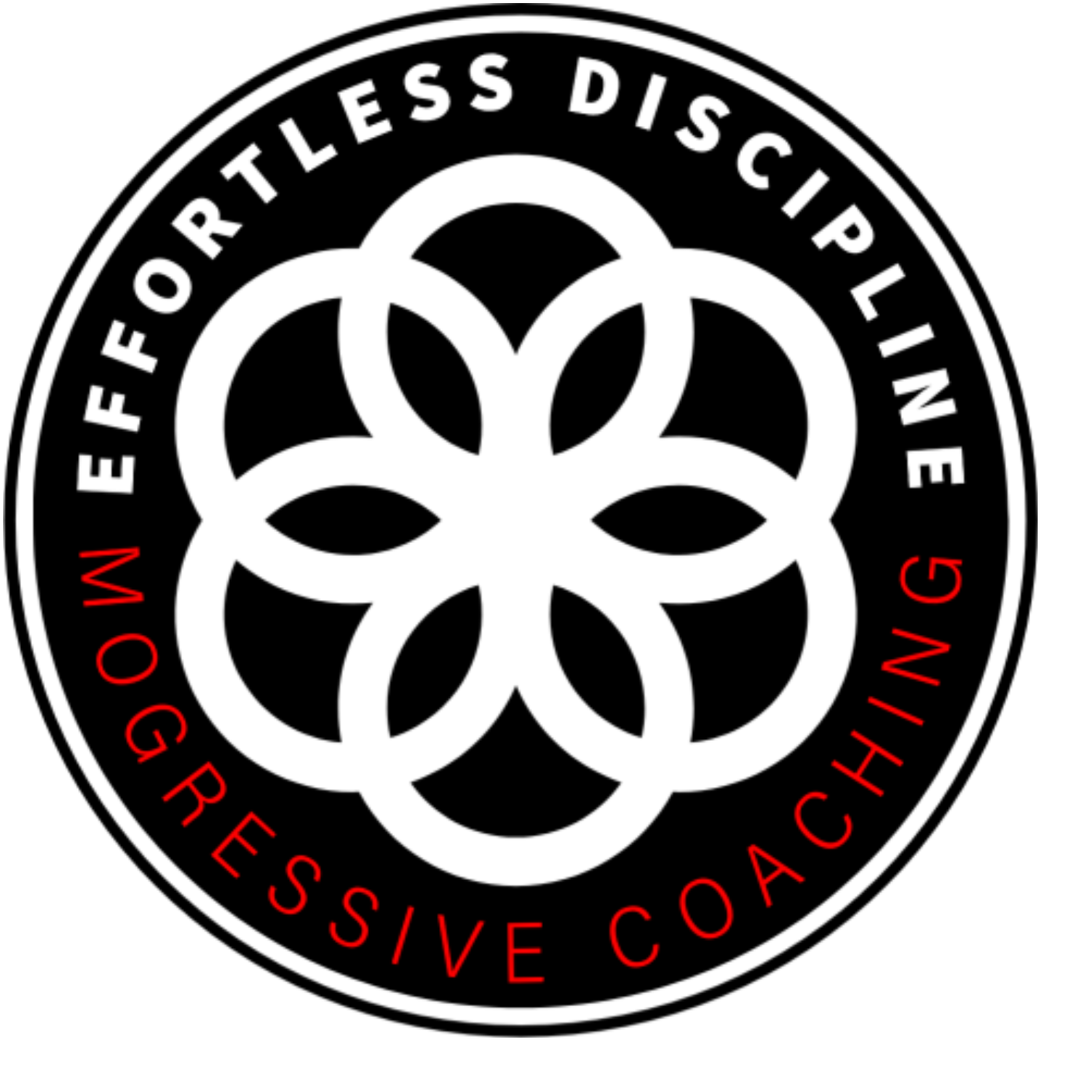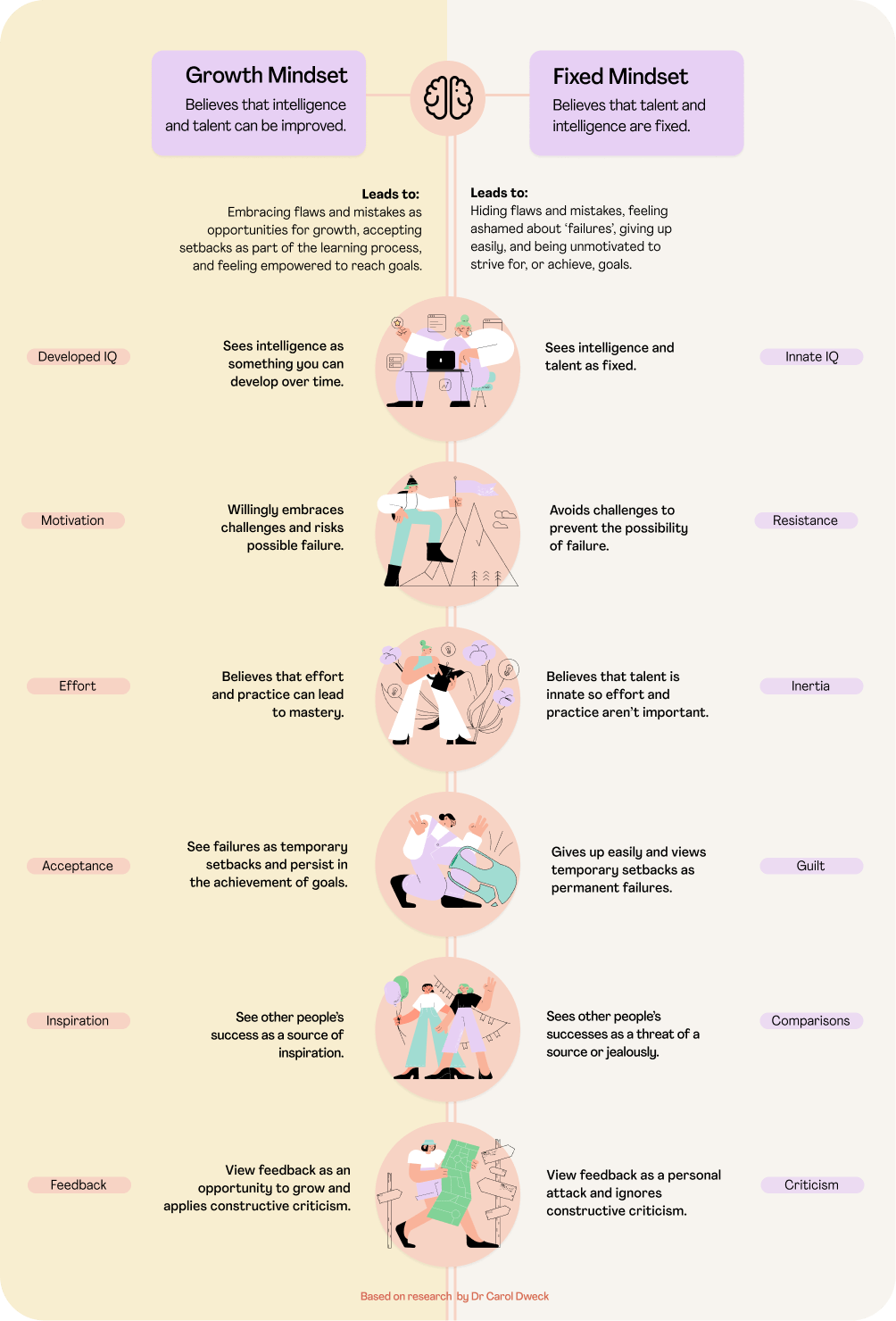
Fixed vs Growth Mindset Which One are you?
Growth mindset or fixed mindset?
Can the way we think about ourselves and our abilities shape our lives? Absolutely.
A growth mindset means that you believe your intelligence and talents can be developed over time. We're all about growth mindsets and encouraging people to adopt a positive outlook on self growth & development.
Let's look at growth vs. fixed mindsets together, explore the science, and see how people can change their mindsets over time.
Psychologist Dr.Carol Dweck, from Stanford University, was the first researcher to explore the idea of fixed and growth mindsets. A fixed mindset: in this mindset, people believe that their intelligence is fixed and static. For people with a growth mindset they understand that not knowing or not being good at something can be a temporary state-so they don't have to feel ashamed or try to prove they're smarter than they currently are.
Do you have a “growth” or “fixed” mindset?
This doesn't mean that people with a growth mindset assume that they could be the next Einstein. There are still variables in what we can all achieve. A growth mindset simply means that people believe their intelligence and talents can be improved through effort and actions.
A growth mindset also recognizes that setbacks are a necessary part of the learning process and allows people to “bounce back” by increasing motivational effort. This kind of mindset sees “failings” as temporary and changeable, and as such, a growth mindset is crucial for learning, resilience, motivation, and performance. Psychologist Dr. Carol Dweck of Stanford University was the first to describe the growth mindset. The students were encouraged to endorse a growth mindset through three one hour sessions on brain functioning. Scientists have measured the electrical activity in the brain to understand the brain correlates of a growth mindset.
These suggest that a person with a fixed mindset can slowly develop a growth mindset. According to Dr. Carol Dweck, you can change your mindset from a fixed mindset to a growth mindset. Researchers have found that it is possible to promote a growth mindset by teaching students about neuroscience evidence showing the brain is malleable and improves through effort.
One of the most direct methods of fostering a growth mindset is by understanding our brains are built to grow and learn.
Many people have a negative inner voice that acts against a growth mindset.
Although society often rewards those who achieve excellent outcomes, this can work against a growth mindset. The Wrap Up. The growth mindset is the belief that intelligence and ability can be nurtured through learning and effort. The limited evidence from neuroscience suggests the brains of people with a growth mindset are more active than those with a fixed mindset-particularly in areas associated with error-correction and learning.
Did you know the difference between Growth & Fixed Mindsets?


